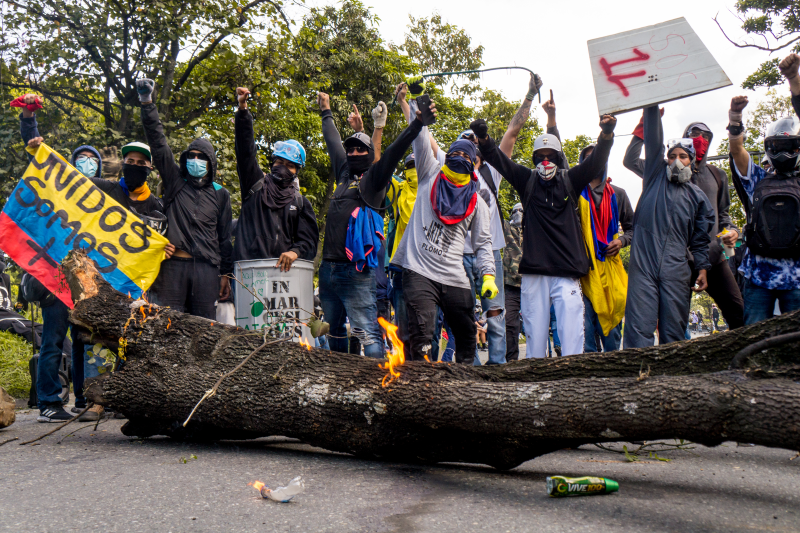Ecopetrol Operations Impacted by Colombia’s Protests
Special to P&GJ
Colombia’s Ecopetrol has accumulated high levels of inventories in wholesale plants and the pipelines network due to protests that “have resulted in blockades of the country's main roads and isolated incidents against certain of the Ecopetrol Group's infrastructure,” the company announced.

The oil and gas company has experienced adverse consequences in its upstream, midstream, downstream and commercial and marketing segments, according to a news release.
In the midstream segment, the accumulation of high levels of inventories in the wholesale plants and the pipelines network led Cenit to suspend, intermittently, pumping at some of its systems, which has resulted in a month-to-date volume of refined products transported of 224 mbd. The volume of crude oil transported month-to-date has been 716 mbd.
In commercial and marketing, there has been a decrease in the national demand for diesel (-33%), gasoline (-15%) and jet fuel (-1%) as compared to the expected demand levels for May. The demand for Ecopetrol's gas from the thermal and industrial sectors has decreased approximately 16% month-to-date, and the demand for LPG in 41% in the same period. The Departments with the greatest impact in terms of fuel supply have been Valle del Cauca, Nariño, Cauca, Huila and Caquetá.
Ecopetrol currently estimates that these adverse consequences should not have a material impact on Ecopetrol's ability to fulfill its business plan targets for 2021. Nonetheless, Ecopetrol cannot offer any assurance as to when the social unrest will end and whether it will not continue to have a negative impact on its operations.
In the upstream segment, the group's production throughout May has been 651 mboed. The most significant impacts have been in gas and white products (LPG and NGL), mainly in the Cusiana and Floreña fields, and to a lesser extent to crude oil from the Putumayo, Meta, Arauca and Boyacá Departments. Production in this segment has also been affected by prevailing operating restrictions related to water management in the Castilla field.
In the downstream segment, the Barrancabermeja refinery has recorded a throughput of 207 mbd in May, given the lower availability of domestic crude and low withdrawals of fuel, petrochemical and industrial products. The Cartagena refinery's operations have not been impacted.
Related News
Related News

- Keystone Oil Pipeline Resumes Operations After Temporary Shutdown
- Freeport LNG Plant Runs Near Zero Consumption for Fifth Day
- Biden Administration Buys Oil for Emergency Reserve Above Target Price
- Mexico Seizes Air Liquide's Hydrogen Plant at Pemex Refinery
- Enbridge to Invest $500 Million in Pipeline Assets, Including Expansion of 850-Mile Gray Oak Pipeline




Comments